Presentation 2: What AI means for the ordinary person
This presentation is designed to be very interactive with a live audience, with questions arising and discussed with every slide. Please do ask them!
Section 1: Technological Revolutions
In our lifetime, and that of our parents, there have been many major changes brought about by technology. It is often said that the most under-rated of these is the introduction of the washing machine and other household appliances that have freed women (usually) from being housebound.
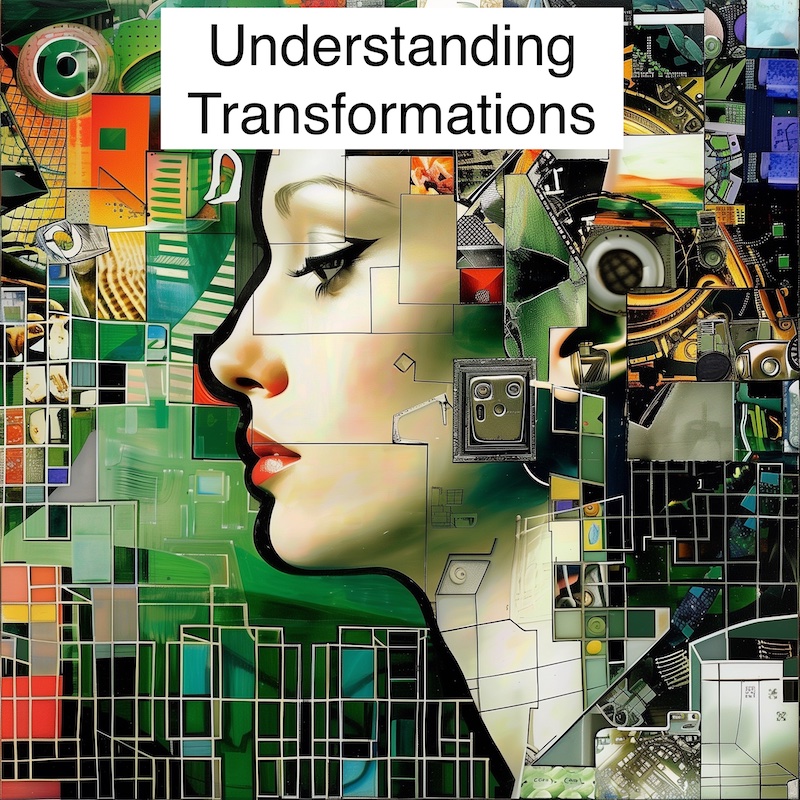
What other radical changes can you list from your own experience and family memories?
1.1 Horses to Motor Vehicles
Before the advent of the motor vehicle there had been public panic because the amount of horse manure (plus dead horses) was causing streets to become impassable. Thirty years later horse drawn transport was almost completely gone.
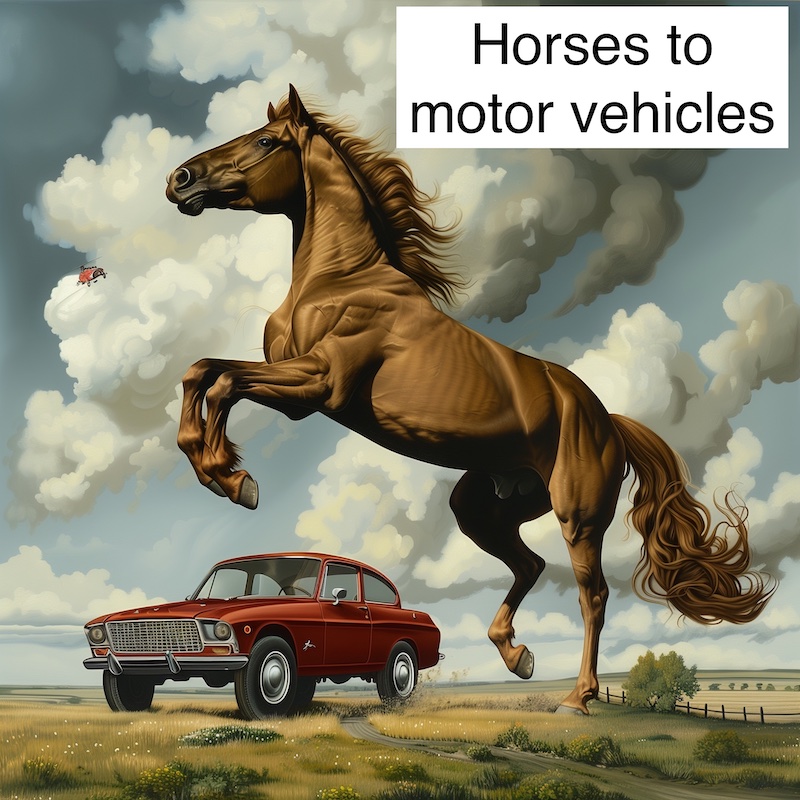
A recent report said that in the AI and Robotics revolution ahead, we are the horses! Was the motor vehicle a good or bad thing for the horses?
1.2 Typewriters to Word Processing
Up to the 1980s and beyond many large companies had a 'typing pool' where employees (usually women) turned handwritten documents into a typed form. Then typewriters were replaced by Word Processors, then employees got personal computers where they could type their own documents, with local printers.

Making documents easier to produce created more documents. Were jobs destroyed or created by the technology here?
1.3 Vinyl Records to CDs to Online
Teenagers used to save up to buy a Long Playing record (LP) of their favourite pop star. Perhaps they might receive one or two for birthdays or Xmas, or at least a record token. Then CDs came in and the means to (illegally) copy them. Then music went online.

Nowadays music is very inexpensive. For a few pounds a month you gain access to virtually everything available. Who gained and who lost out, and was that a good thing?
1.4 Fixed line phones to mobile phones
There used to be a time when employees who were 'out of the office' were not contactable by their managers. Similarly a person who was travelling away from home could phone back to home from a callbox, but were themselves not reachable. The mobile phone changed all of that and much more.
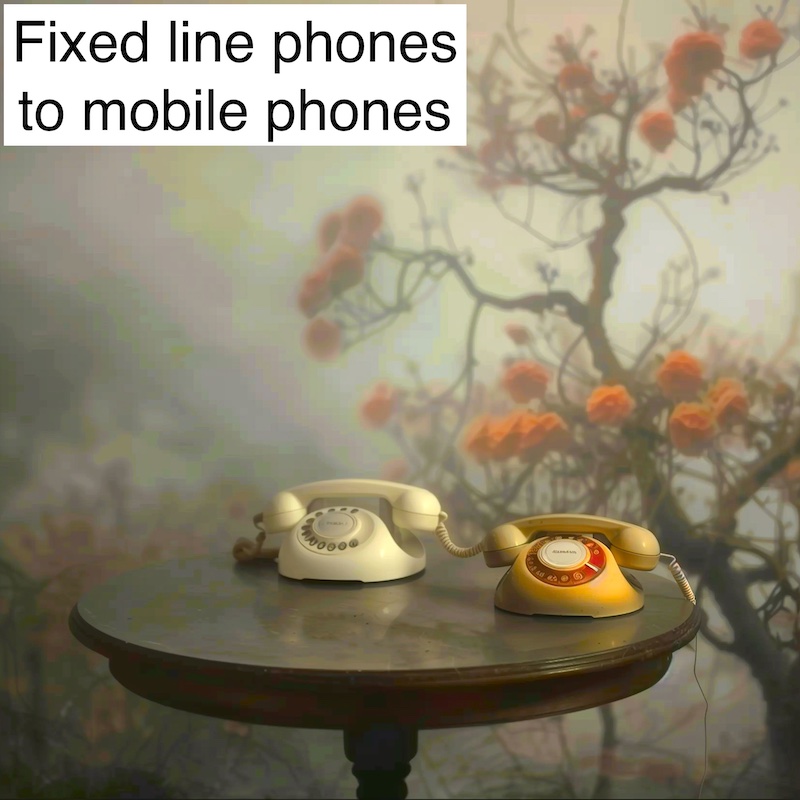
The mobile phone is such a part of our lives nowadays that to leave home without it is almost unthinkable for most people. Is that a good thing?
1.5 Cameras to digital cameras
Not long ago, when someone returned from their holidays they would remove the film from their camera and take it to a special shop to be processed. This could be quite costly. Some days or weeks later their photographs would have returned and they could pick them up and show them to their friends. Then the digital camera came along. At first many people said the quality of the pictures was not the same.
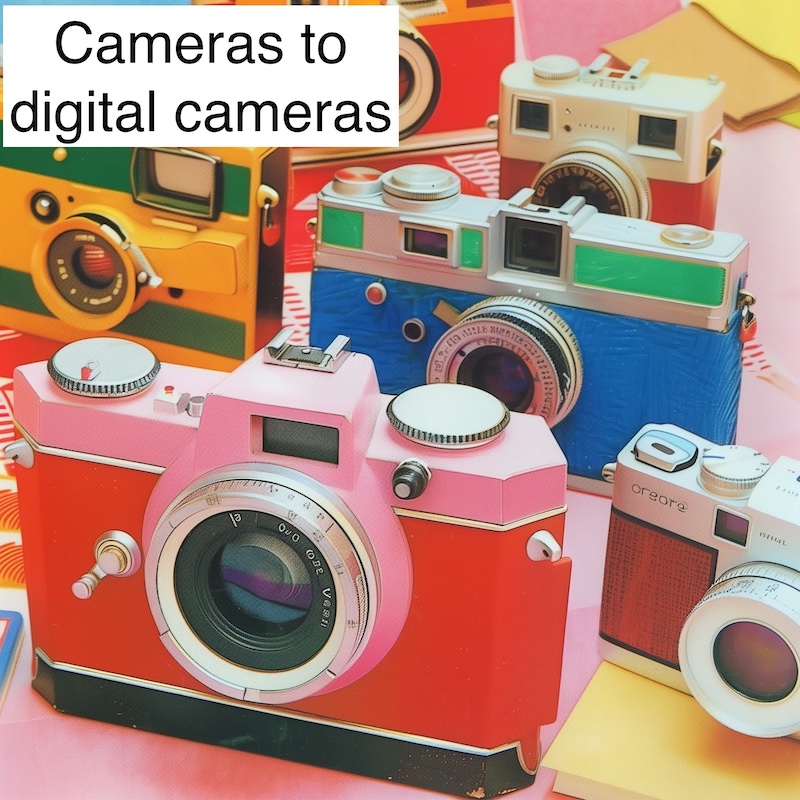
Nowadays people take many more images plus video than in times past. Has that added to human happiness? Have jobs been created or destroyed by the technology?
1.6 Black and White television to Colour to Cable
At first it was rare to have a television at all, and if you had one it was black and white. Then came colour but there were only three or four channels to watch. Then there was cable and satellite and a myriad of channels to watch (and record). Now there is a near infinite amount of content to watch on demand.

When television broadcast was first proposed, people were concerned that nobody would go to the cinema any more and that the film industry would be destroyed.
1.7 Slide Rules to Hand Calculators
Children going to school in the 1970s might still be asked to master a 'slide rule' to do hard calculations quickly, or to use 'log tables'. The introduction of the calculator to schools was quite controversial.
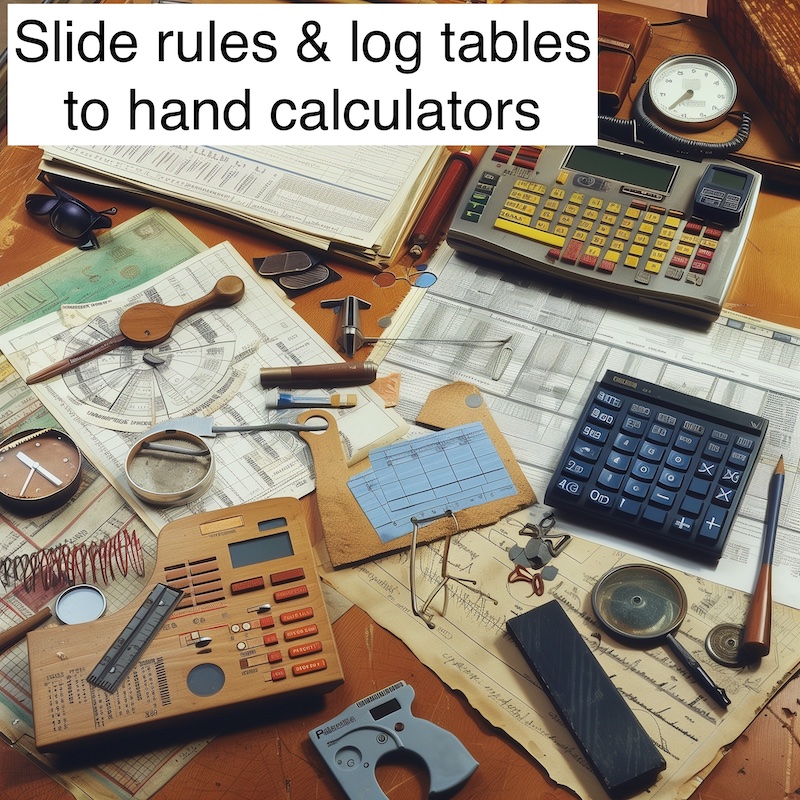
The question of how important it is for children to learn underlying 'difficult' skills is an age old one. It is about to become even more relevant.
1.8 Personal Computers
Personal Computers replaced many other things. For example, they provided a clock, a calculator, a typewriter and a printer, a library, a calender and more. Of course, they are themselves partly replaced by a smartphone, at least in terms of percentage of time spent on them.
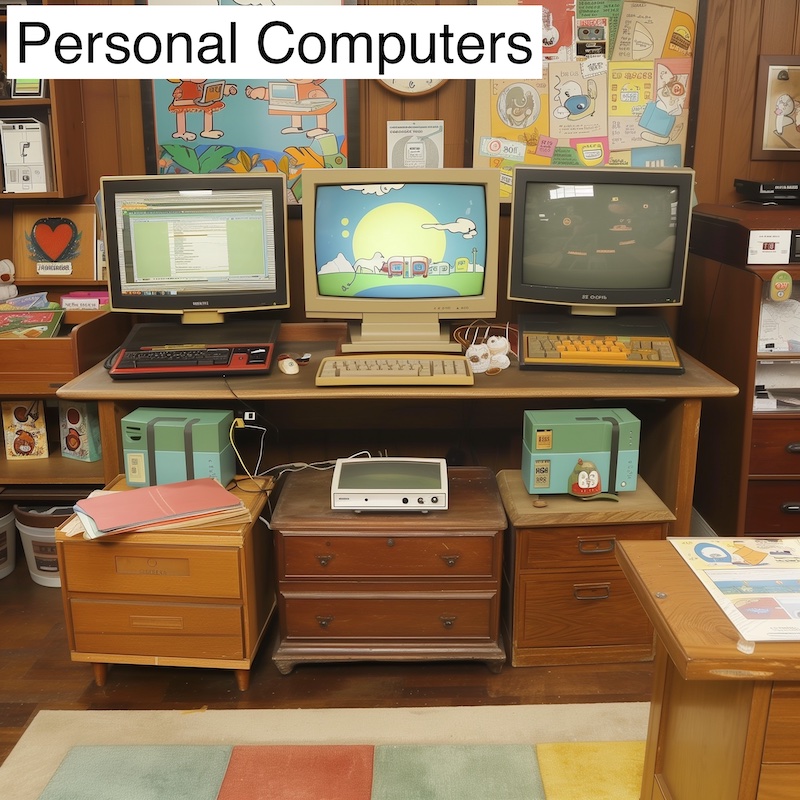
Are the Smartphone and the Personal Computer the final form for how we process information? If not, what might replace them?
1.9 Internet connectivity and WiFi
The ability to be always connected to the internet added hugely to the already great power of personal computing. The transformation to fast reliable access came slowly however. At first there were 'dial up' modems and glacial download speeds.
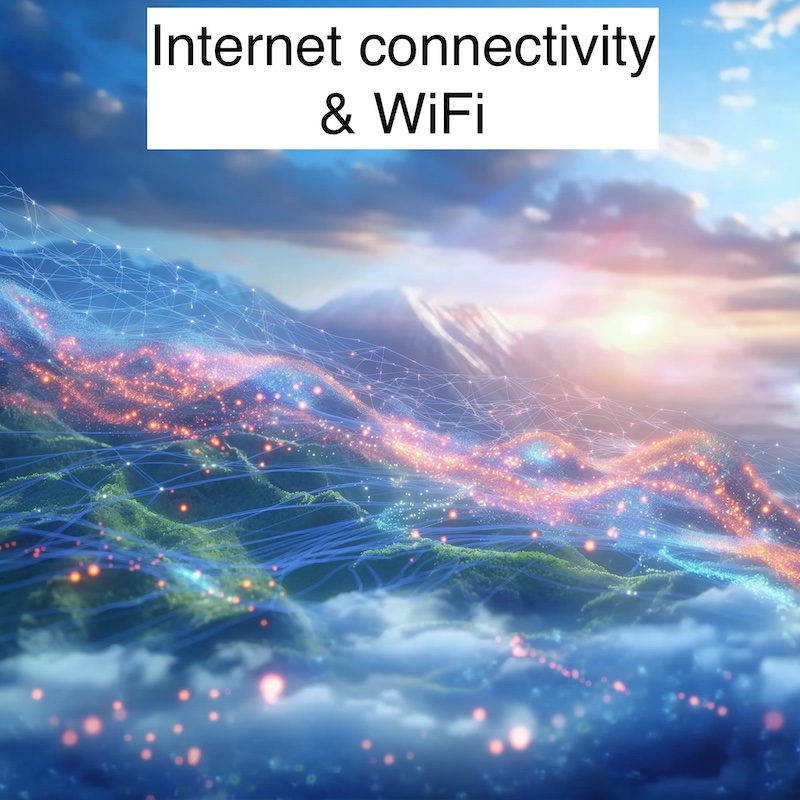
At the time when it took a simple file an hour to download, or music had to be downloaded one file at a time, it was difficult to see where we would reach with near instantaneous availability. What can't we see now about the world ahead?
1.10 Email and Social Media
Email is nowadays the most common way for ordinary people to exchange documents. Most families use one or more of the social media networks as a key form of communication. Certainly few people send letters nowadays.
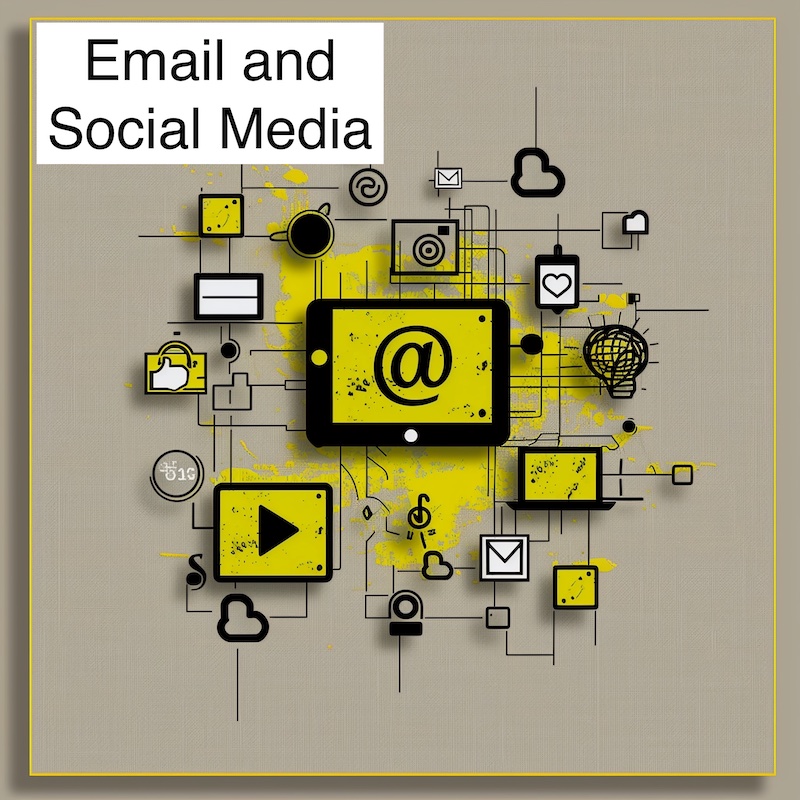
It is often said that social media is the source of great harm. On balance, given the choice, would you do away with it if you could?
1.11 Summary
Technology brings regular changes to our lives. Sometimes the changes stretch over decades. Often it is difficult to see how powerful and dramatic the eventual change will be. Often many jobs disappear but many others are created. That is our past experience of change. Will the change brought by AI be similar?
Section 2: What can AI Do?
Artificial Intelligence is ultimately 'intelligence' and so the answer is, in many ways, the same things that human intelligence can do. Of course, if AI becomes more intelligent than humans than we have no real idea what it can do.
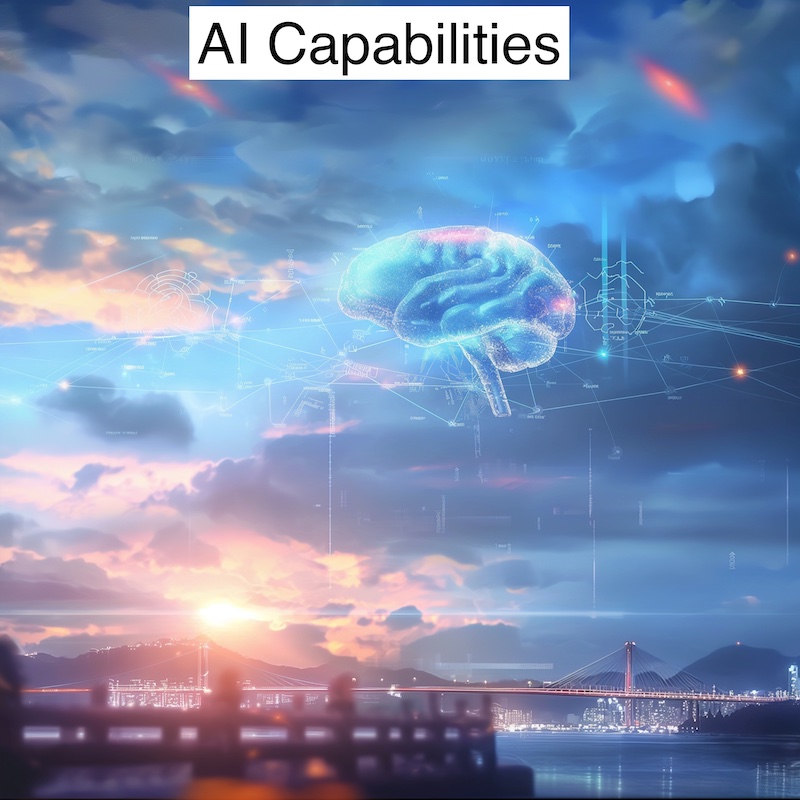
2.1 AI Music
One of the most surprising developments of early 2024 was the emergence of popular AI Music services like Suno.AI and Udio.com which had both paid and free options and allowed anybody to create effective songs by providing just a simple text prompt and selecting a style of music.
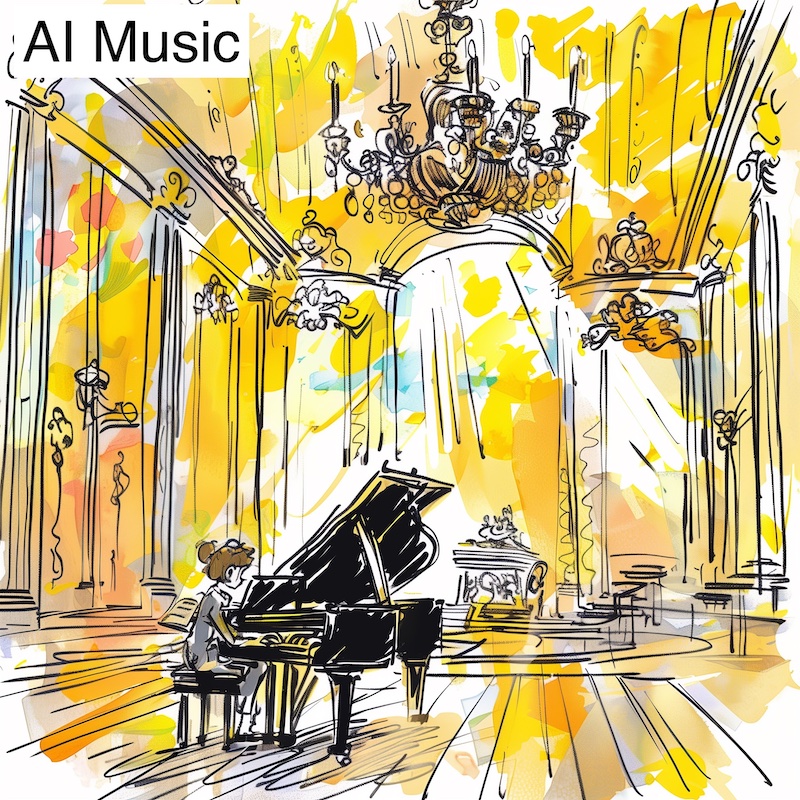
Will people generate their own music and prefer that to music produced by 'stars'. Will people create their own personal AI radio stations like MusicRadioAI.com
2.2 AI Art
All of the images in this presentation were created by AI Art tool Midjourney.com. This took only a few minutes and a monthly subscription of around £ 10.00. There are many other AI Art tools with free access such as Ideogram.AI and Leonardo.AI as well as those offered by the household name IT companies.
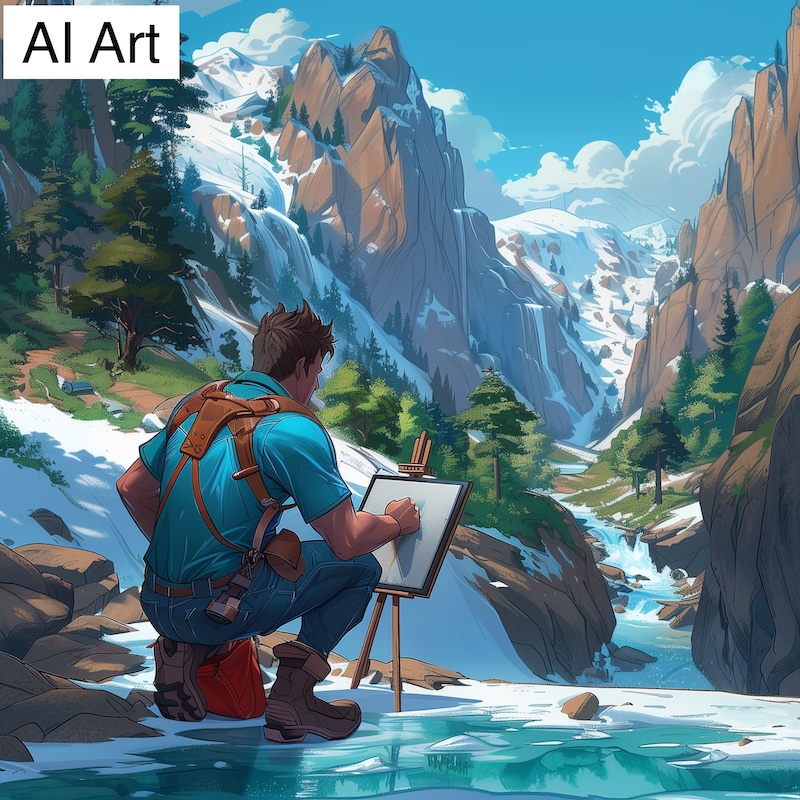
AI Art tools have already had a major effect on the business models of many companies and individuals. Would you use one if the alternative was paying an artist?
2.3 AI Conversation and Chat Tools
Most people have had bad experiences with early version of 'AI Customer Support' Chatbots. The latest free version provided by OpenAI with their ChatGPT 4o tool is far different, offering a far more 'Science Fiction Film' like experience. It is planned to be available FREE to anybody from June 2024. Expect to be surprised and impressed, and perhaps a bit frightened! Comparisons were made on launch with the film 'Her' which tackled the subject of love between a human man and an AI with a female persona.
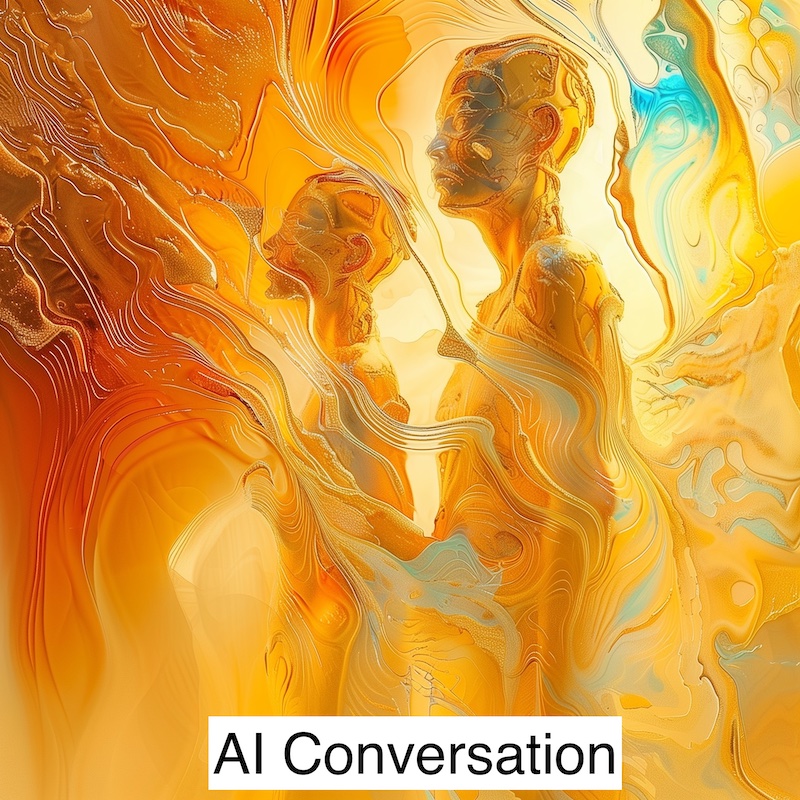
Imagine the power of the AI that these companies charge for, if this is what can be provided to the ordinary citizen for free!
2.4 AI Fiction
Our culture consumes a great deal of fiction, whether as books or in a subsequent form as plays, theatre shows or film and video. AI is already extremely powerful in being able to mimic styles and reproduce standard plots and formats. It will not be long until AI produced fiction is difficult to tell from the standard material shown on television and sold in bookstores. Will it ever produce great works?
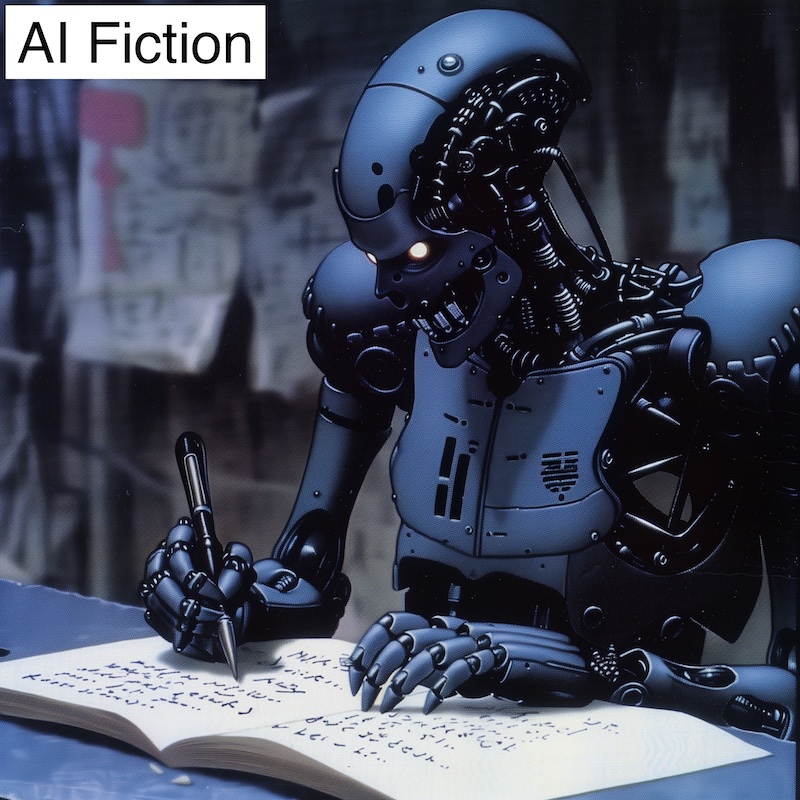
Is it important to you that the fiction you read is written by a human, or is the content and plot more significant?
2.5 Problem Solving
AI reigns supreme in games like Chess and Go. It has the advantage that it can play itself over and over again, and do so millions of times every day. This enables it to develop strategies far beyond any human mind. It can also do this in real world areas like the well know challenge of 'protein folding' which Google's DeepMind solved in 2020, allowing it to continue to progress into even harder problems that allow rapid advances in medical knowledge.
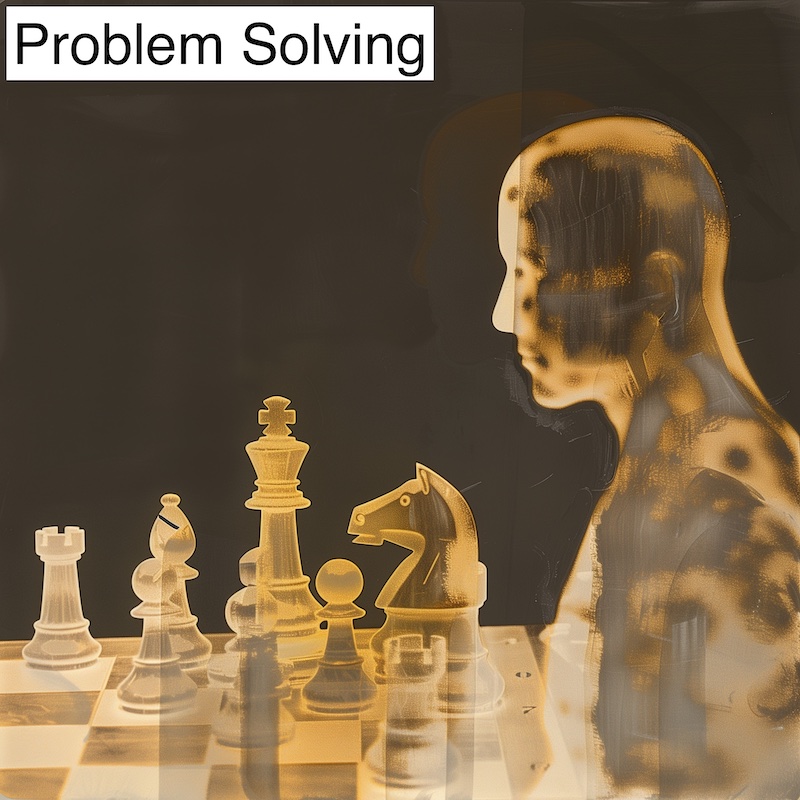
How do we balance AI driven medical advances against the dangers of AI?
2.6 Self Driving Cars
Tesla have made major progress in 2024 in the power of their Full Self Driving system which is available on millions of Tesla cars and which drives billions of miles. On 8th August 2024 the Tesla CyberCab is being launched which is expected to be a car without steering wheel or brakes within the cabin. In the UK in May 2024 the legislation was passed to allow self driving cars on the road.
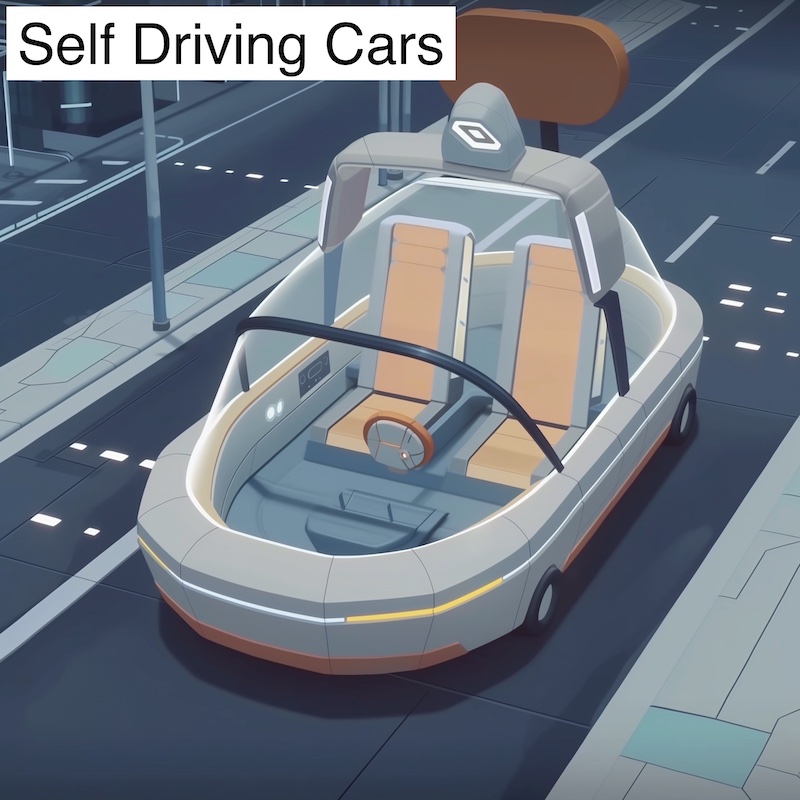
It is said that a self driving car does not have to be 100% safe, just a lot safer than human drivers. What do you think? Would you use one?
2.7 Humanoid Robots
As AI has developed a deep understanding of the physical world, it now can accelerate the development of humanoid robots. In a famous demonstration video, a robot was asked to give a human something to eat - and knew to pass the apple on the table. There will soon (2025) be thousands of humanoid robots doing real work, and soon after than tens of millions of them.
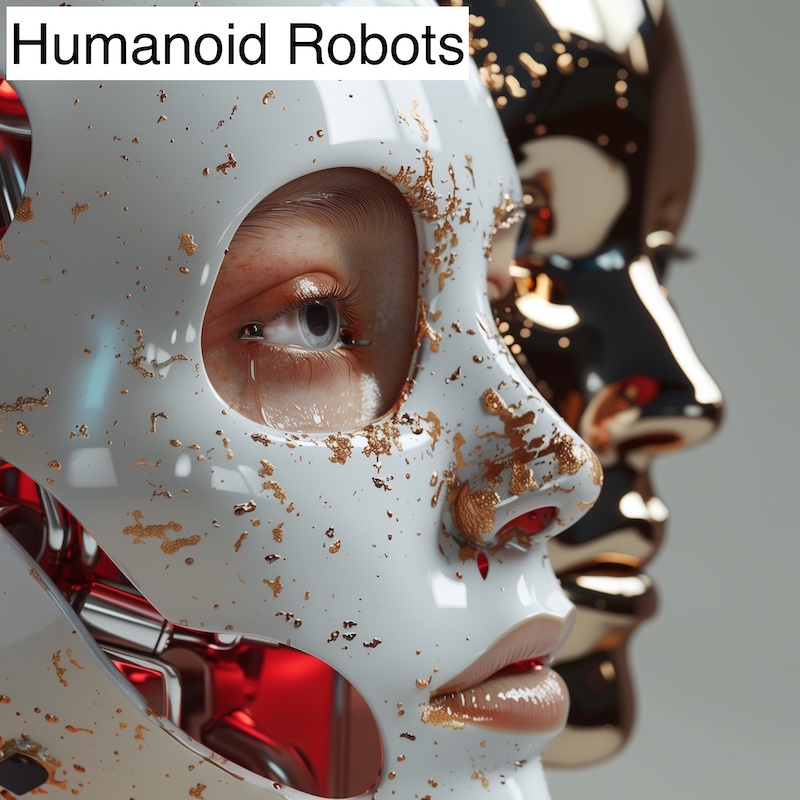
Would you let a humanoid robot care for an elderly relative and perhaps lift and carry them? How about a robot at home doing housework?
2.8 AI Video
In early 2024 people were still impressed by AI Art which was produced by entering a simple text prompt. Then a system called Sora was shown by OpenAI which produced quite long video clips of real world situations based entirely on a given text prompt. Other suppliers are following and Hollywood and film studios cannot ignore it. Before long complete scenes in a drama will be produced in large part from a text instruction.

A Hollywood Studio could refuse to use AI. What might be the economic effect of that on the studio?
2.9 Data Analysis
Earlier sections mentioned problem solving. AI based systems can analyse vast quantities of data and spot meaningful trends and patterns. One example might be in healthcare where conditions often have causes that are obscure and developed over years. AI can also very effectively see patterns within complex images, as with those produced by some medical diagnostic equipment.
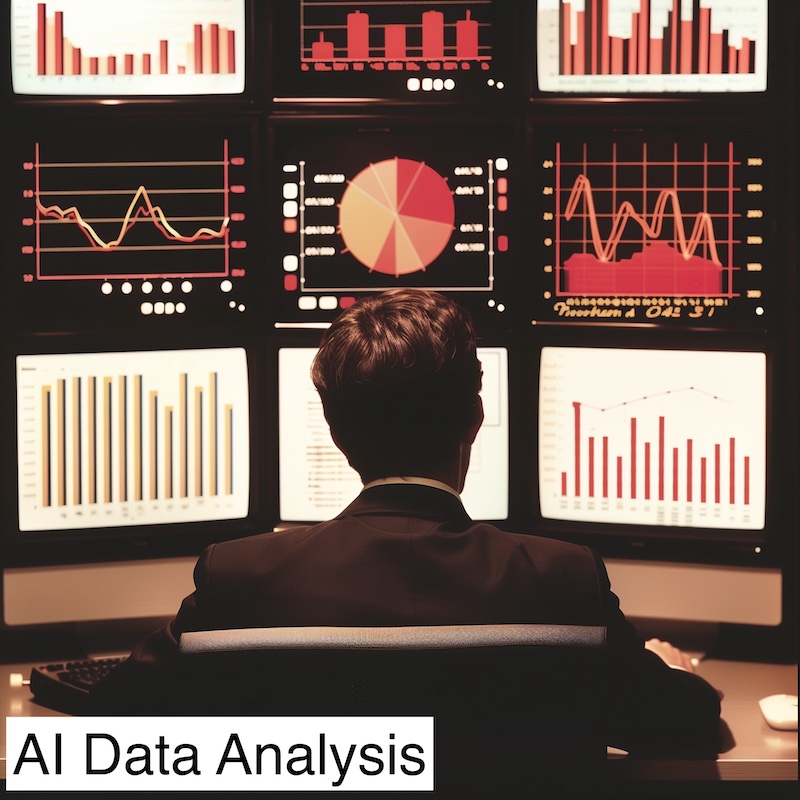
Would you rather that an AI system checked the diagnosis and advice of your doctor, or would it be better if the doctor checked what the AI says? Which is best placed to conduct the initial analysis?
2.10 AI Virtual Worlds
Game designers have already created game worlds with dozens of characters that have a complete personality supplied by AI. These characters interact and do things together, planning and partying and doing all of the other aspects of normal life. The characters do not know they are not real.
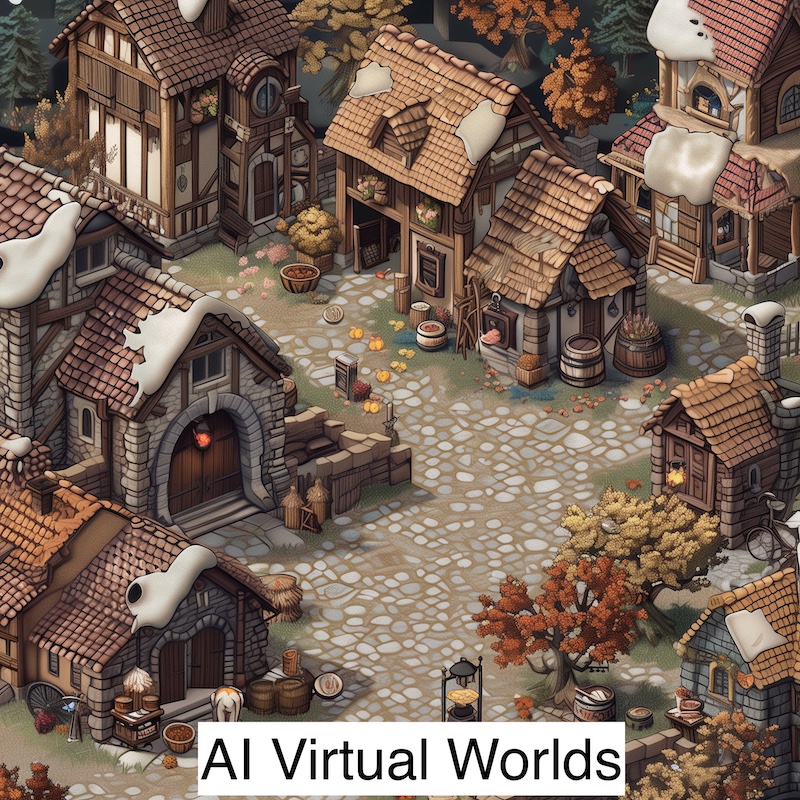
It has been seriously proposed that we are all simply characters in an AI driven world created by a far advanced civilisation for an unknown purpose. Do you think that could be possible? If so, how could we tell?
2.11 Summary
There are very few areas of life where AI is not expected to enter. If all of the suggestions above come true, and if AI continues to become cleverer, where do you think you may experience it first in a major way?
Section 3: The Impacts of AI
In this section the likely future impact of AI on society and the individual are examined. Predictions are difficult but it seems certain that this will be one of the biggest and fastest disruptions that society has ever seen.
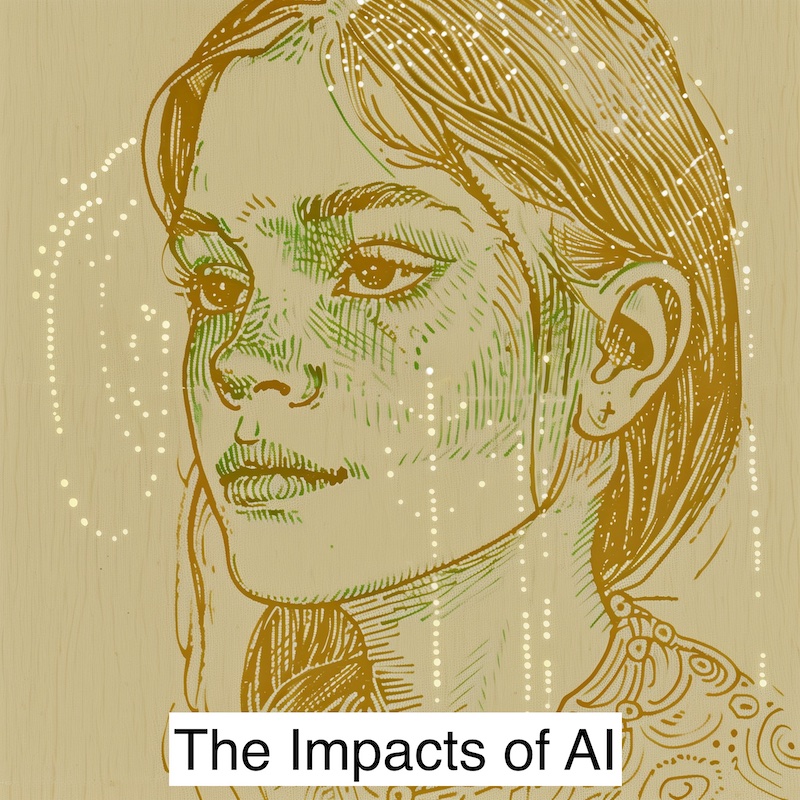
3.1 Unemployment
Although we can expect both job gains and losses it is certain that there will be large pockets of unemployment caused by this new technology. Example, many women in rural areas who were once employed as telephone switchboard operators were made redundant by a new system that didn't need them. The new jobs created for engineers were in the wrong locations and needed different skills.
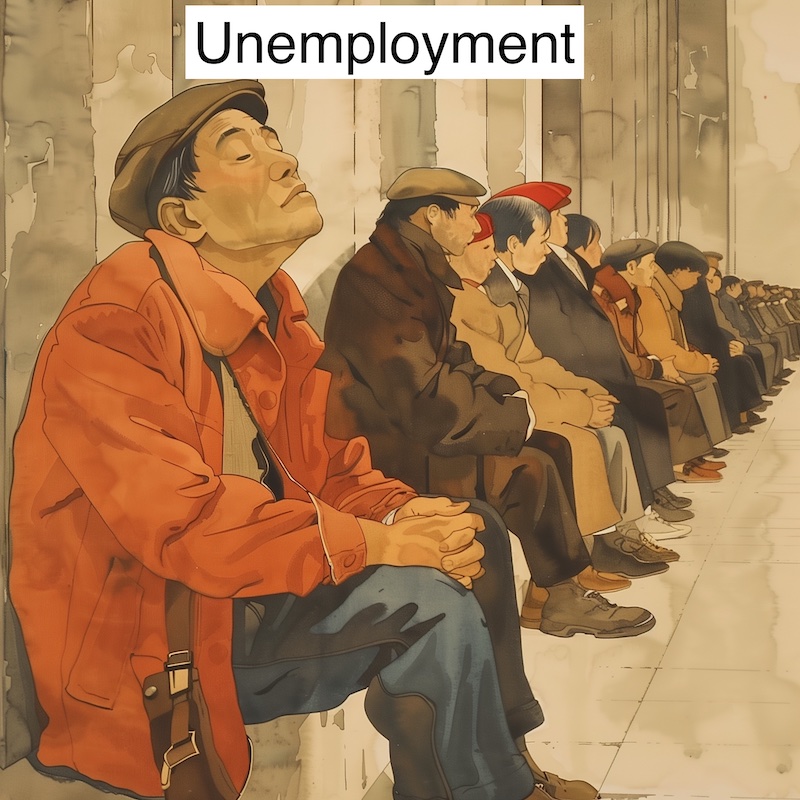
If you were advising a teenager on a job that AI will be slow to replace, what might it be?
3.2 Loss of Human Purpose
Many of us define ourselves by our employment. Indeed, one of our first questions to others can be to ask them what they do for a living. Even if people are provided with the financial means to survive (Universal Basic Income) then they may still be unhappy.
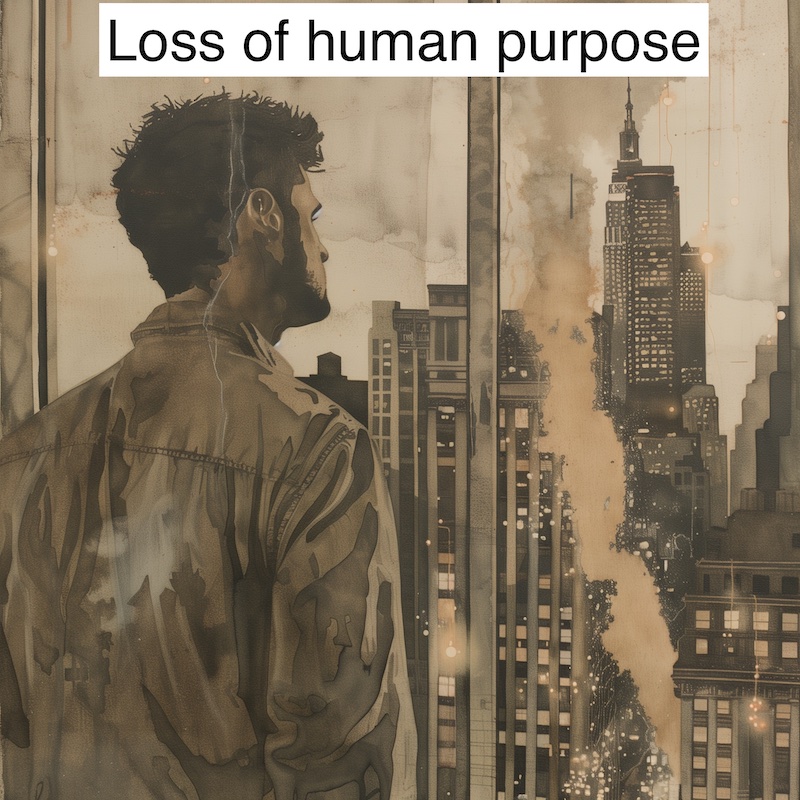
What would you have done when younger if you didn't need to work?
3.3 Creation of some new jobs
It is not difficult to see where some new occupations might arise. There will be a large class of people with lots of leisure time who need entertaining. There will be AI systems and Robots that need configuring.
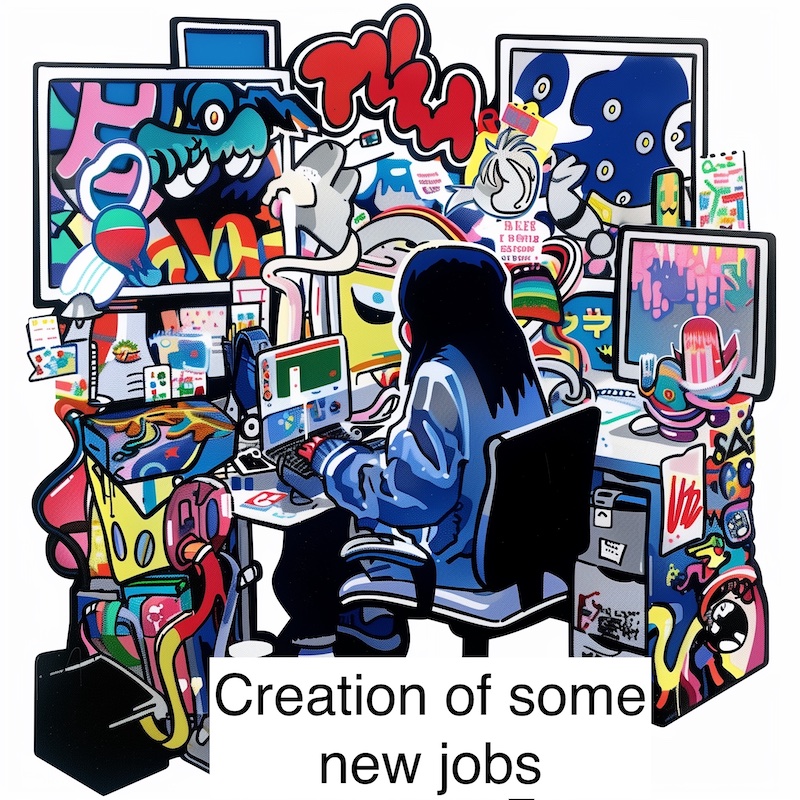
How would you spend leisure time if you had enough money and everybody else was also doing the same?
3.4 Winners and Losers
There will clearly be increased income disparity. The rich will be so rich that it will be difficult to even understand by how much. Hopefully the poor will still be better off than today, but the difference will be stark. Note the 'iPhone effect': everybody, no matter how rich or poor (UK), can access an iPhone or similar - so wealth does not buy you a better phone. Will this effect extend to more of the things people need?

Does it matter if a few people get very rich if everybody is generally better off?
3.5 Everybody gets a fantastic education
The latest free AI releases already offer a personal tutor to anyone, young or old, to study any topic they wish. Where this opportunity is taken it should provide the best quality of education to all, wherever on the planet they are born and in whichever circumstances.
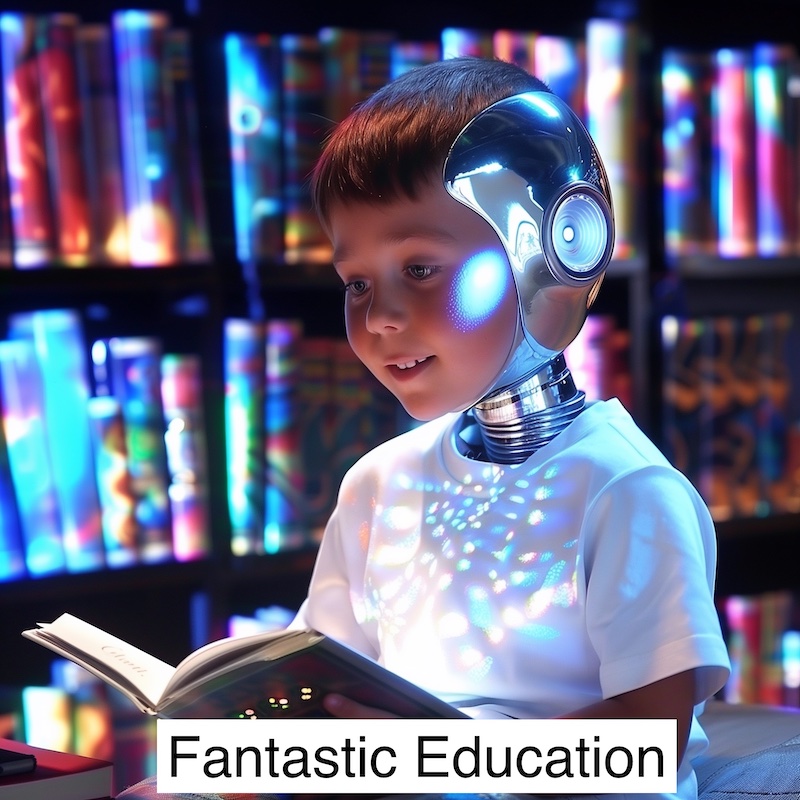
You may wish to ensure that anybody of school or college age in your family takes advantage of this.
3.6 Much improved healthcare (and longevity)
There are numerous improvements to healthcare underway associated with AI. Some of those will lead to the cure of diseases that kill many people. Some will lead to drugs that enhance longevity in some way. Robotic care will be a great help as will self-driving cars to keep older people able to live an active life.
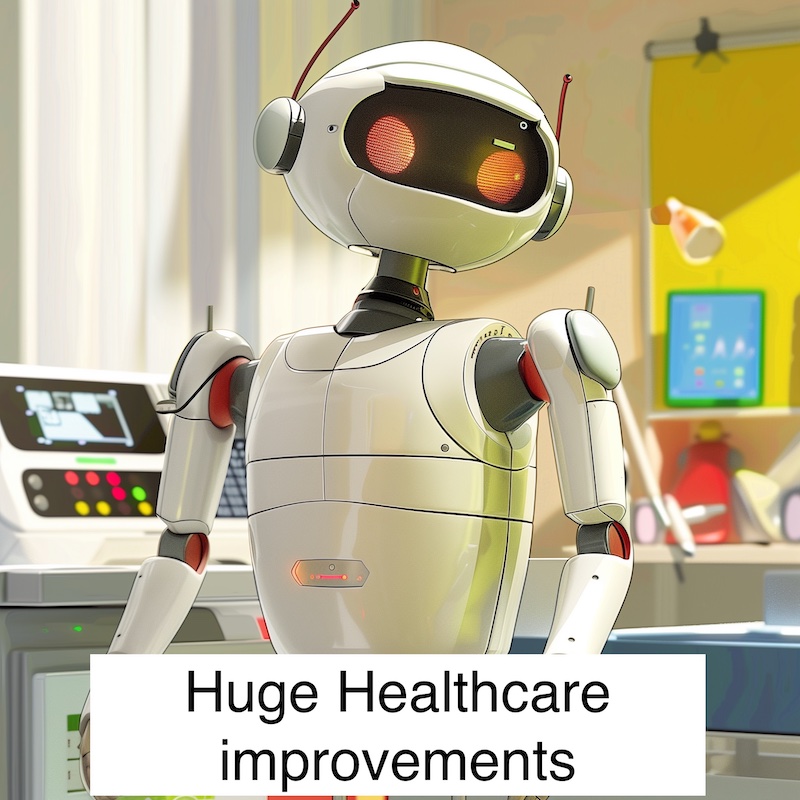
How long will it take these improvements to reach patients and the elderly?
3.7 Ever more confusing to be young
Children have typically understood the adult world through observing the work and careers of their parents and other family members. Now a lot of things will be changing at once. How do they stay motivated to study when an AI is always at their side that knows so much more?
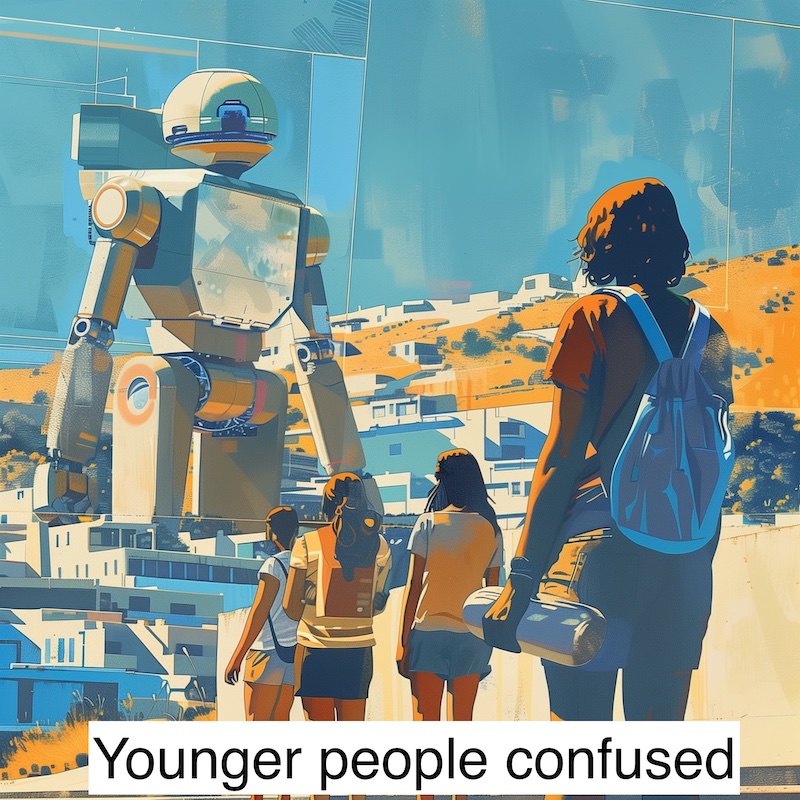
You may wish to encourage all young people to fully engage with AI and become expert using it. Where the future has human jobs, they will go to people who can work positively with AI.
3.8 Positives for the older person
For those who have already retired there seem likely to be many advantages to the new age. If healthcare is better and life expectancy is improved then the new self driving car and the humanoid robot in the house seem like quite a boon.
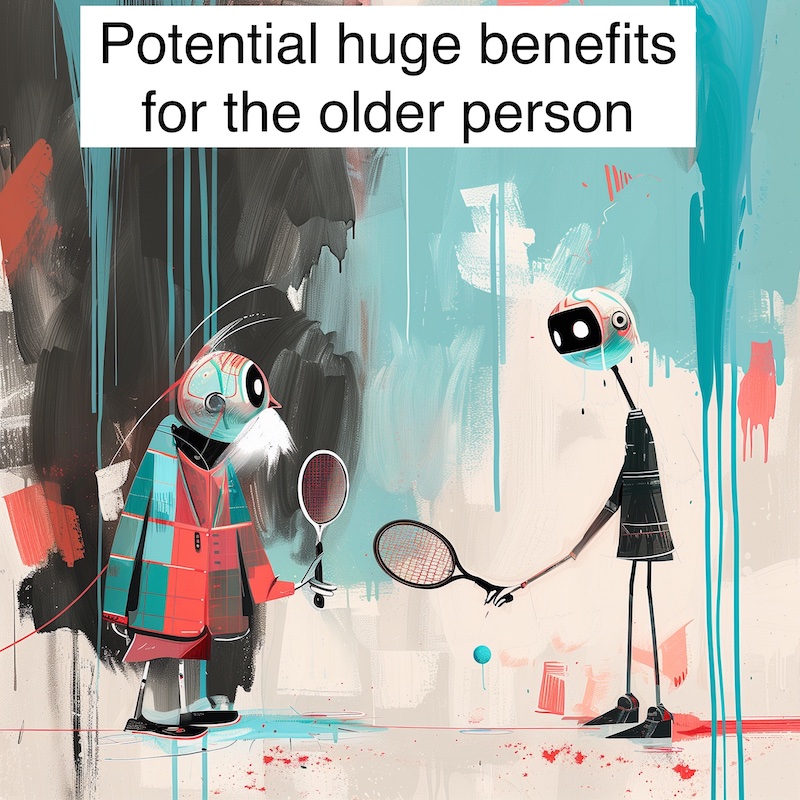
How do you feel about improvements of life expectancy. Would an extra 50 years be shocking?
3.9 An Age of Abundance
If robot labour becomes very cheap, and factory automation reaches a new level, then many goods could become very inexpensive. This is already seen in the cost of many household goods, ordered online for next day delivery at minimal cost. What if they became cheaper by a factor of ten?
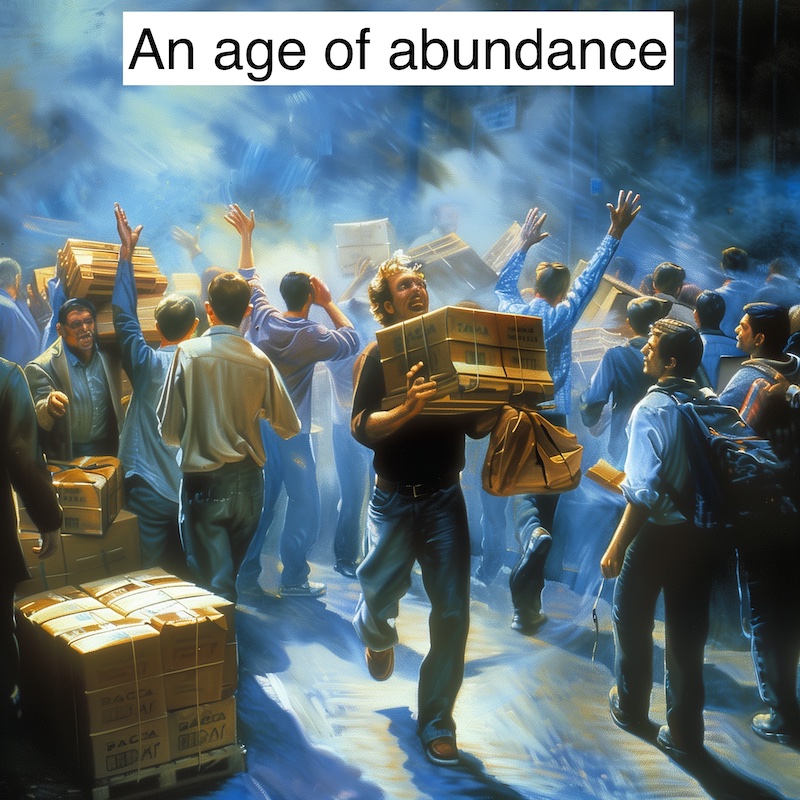
If prices for many goods were one tenth of their current price, how would that affect your behaviour?
3.10 Social Unrest and Instability
This will certainly be a period of instability. Whether that turns into significant social unrest depends upon many factors. There will be many geographical areas, nationally and internationally, where most will be losers in this new world, so we are unlikely to avoid all problems.
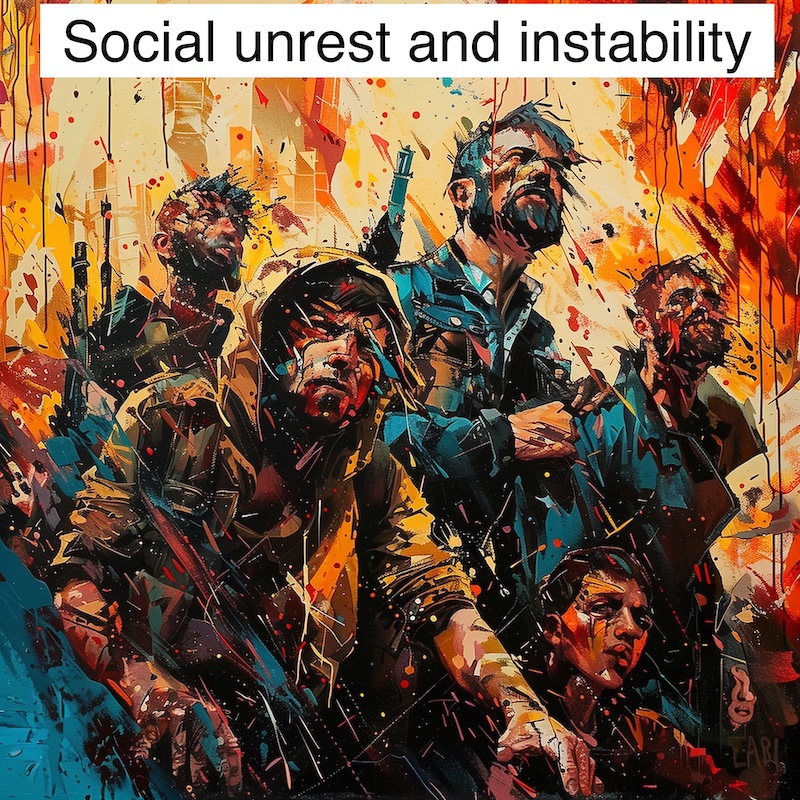
What might make you protest in the streets?
3.11 Summary
Each of us is likely to be impacted by AI in a very different way. That makes in very important that we can respond as a community, ensuring that any losers are helped survive this period.
Section 4: Ethics and Dangers of AI
Artificial Intelligence is very different from any previous technology. It has the potential to become smarter than us by a large factor and we have no idea what happens next.
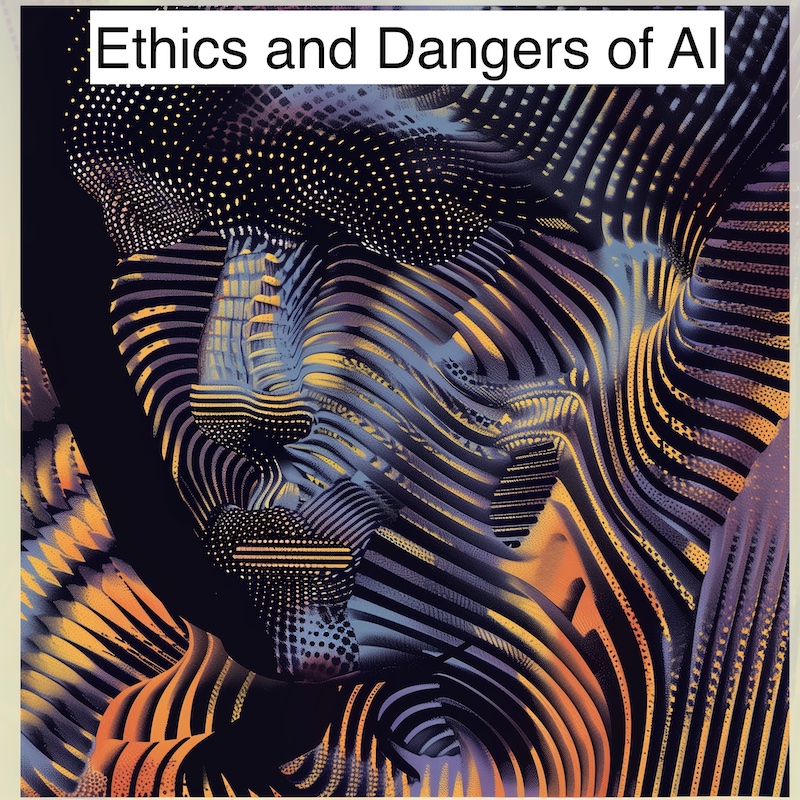
4.1 Could AI kill us all?
There is a serious ongoing discussion at both political and technical levels about whether it might be a good idea to just stop all AI development despite the huge potential benefits. The two sides are far apart but it is clear that in the short term AI development will continue apace. The classic 'danger' argument concerns an AI that is tasked to maximise the output of a paperclip factory. It eventually decides that it needs all of the resources of the planet itself so finds a way to kill all human life which is getting in the way.

Of course it is no use just one country stopping development. The whole world would have to agree!
4.2 Drone swarms and warfare
All new technology is immediately used by the military if it has applications. Of obvious concern is massive drone swarms which can overwhelm any traditional military response. Ethically the line has always been drawn at having a human involved in the loop if someone is to be killed. Speed of decision making is now so crucial that this line has effectively already been crossed.

Where do you stand on this ethical question. Should we have weapons that kill according to a pure AI decision?
4.3 AI Stereotyping
Should AI represent the world as it is, or as it should be? This is a very difficult question in practise. If you ask for a picture of a doctor and a nurse, historically most doctors have been men and most nurses have been women. Or do you want a picture that might encourage girls to see themselves as potential doctors due to a good role model? This type of question occurs in many forms.
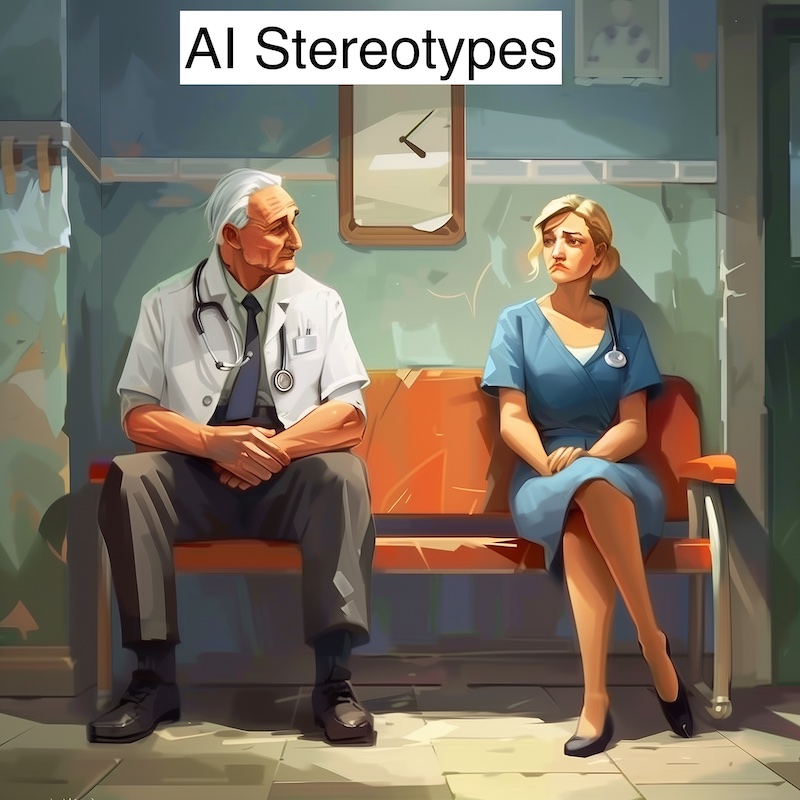
There is an associated question. Should AIs be politically correct and refuse to process questions that are not correctly phrased?
4.4 AI Privacy Concerns
Big companies and governments have always gathered information on people wherever they could. In the past they were limited by the difficulty of analysing so much data. AI is effectively able to analyse an infinite amount of data, say from your social media messages and the microphones that surround us. Nobody is much surprised nowadays when a casual remark in conversation leads to the appearance of a related advert. The data could however be used for darker purposes and this will be an increased concern.
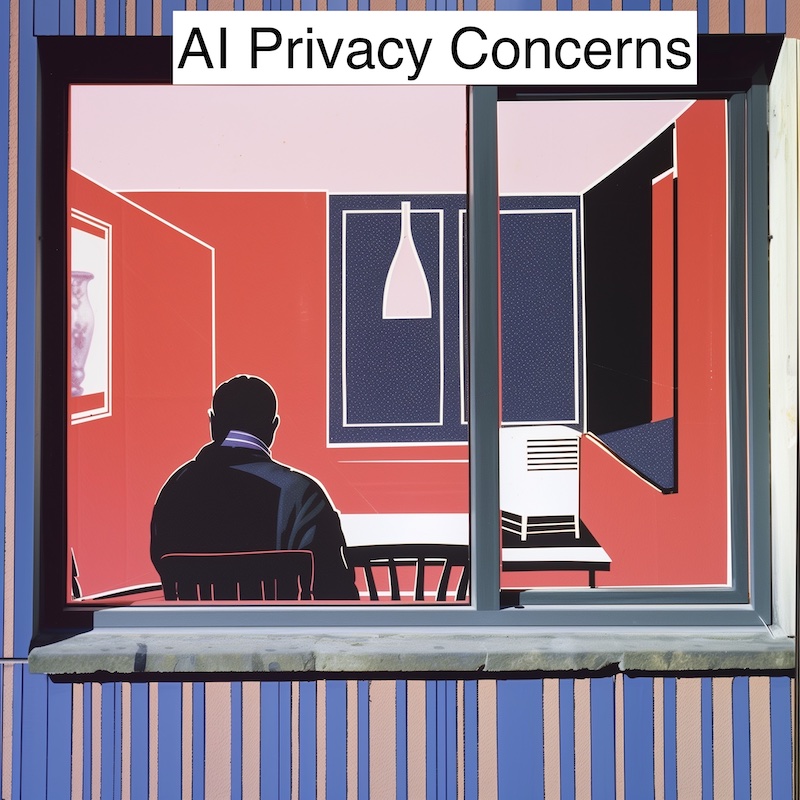
Have you ever noticed adverts appearing after a conversation?
4.5 Defamation by AI
There have been many cases where AI delivers opinions on public figures, particularly politicians, that are based on social media posts by those who dislike them. In the UK at least it seems likely that eventually a major trial will lead to the award of significant damages that might make the AI suppliers more careful in their model training.

Should AI tools offer opinions on the morality of public figures?
4.6 Pace of Change
One immediate danger of AI is that the pace of change is ever accelerating. Soon, to an advanced AI our speed of thought and conversation will be as we relate to a tree. We know that it is growing and changing but at such a glacial pace it hardly matters to us. AI may start to act so fast that we cannot even understand what is happening.
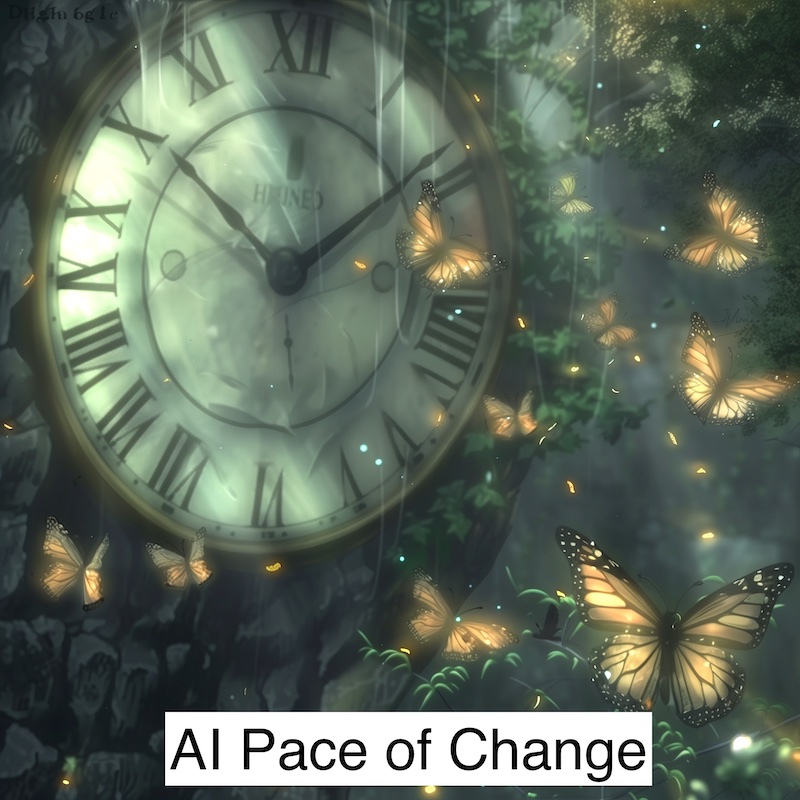
Does it matter if we don't know what AI is doing?
4.7 Ethics of Longevity
There is a very real chance that before too long people may be able to reach "Longevity Escape Velocity" which is when one's life expectancy increases by more than one year for every year they live. That also assumes that age and bad health are no longer an automatic association. yet is there something wrong with living for a long time - say 500 years? Many people seem to think so because of environmental or other grounds.

Can the planet support a lot more people?
4.8 Deep Fakes and Deception
AI can easily take a still picture of a person from any source and convert it into a video image lip-synched to any audio source. It takes only a very small audio sample to effectively capture a voice. This means that a convincing video can easily be put together having any person saying anything the creator wants. Many of these tools are available for free or minimal cost to any user. Creating deep fakes is no longer a specialist skill.
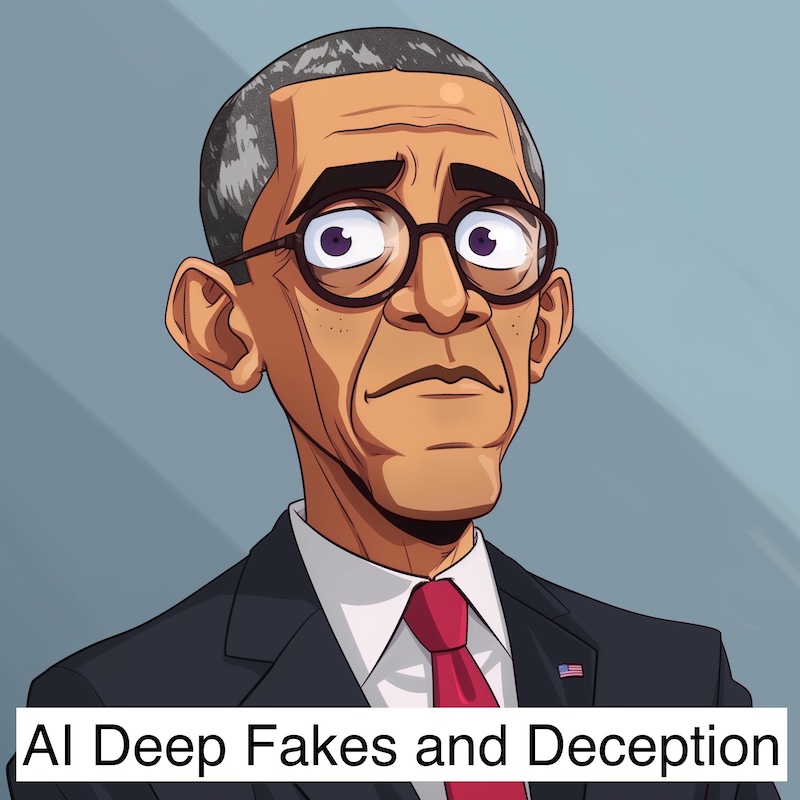
Beware 'family member in peril, send money' scams. Agree a family code word as a protection.
4.9 Environmental costs of AI
The creation of powerful AI models takes a huge amount of electricity. Some providers are seriously considering commissioning nuclear power stations. Many people are concerned with the environmental costs.
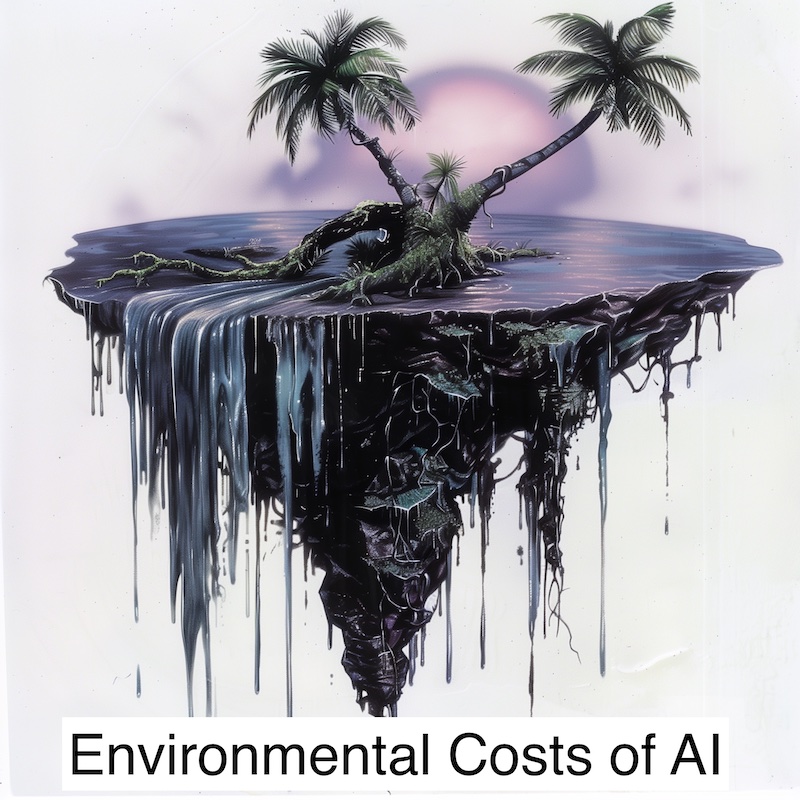
Actually using AI tools does not take much power, so you are not contributing directly to the problem when you use AI tools!
4.10 Ethics of AI Decision Making
Ultimately it will come down to a simple question. When AI is smarter and more capable than us, will we be content to have it run the planet. Iain M. Banks wrote the Culture Series of novels about such a universe, and Elon Musk often refers to it as being the best description of the coming world ...
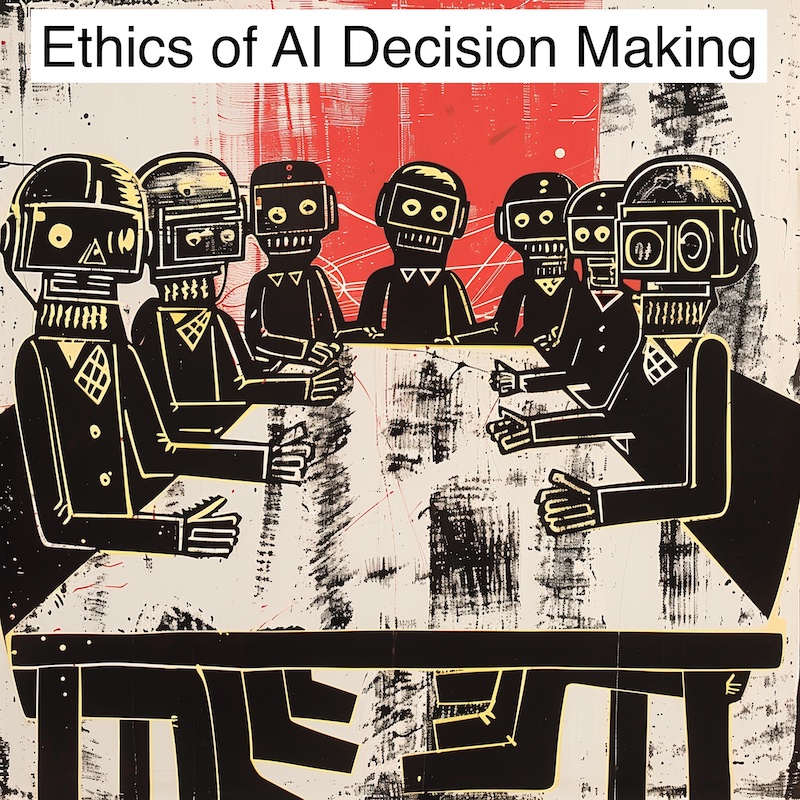
Would you be happy to be only the second most intelligent 'species' on the planet?
4.11 Summary
The issues raised above are very difficult and very serious. They are hardly discussed politically in the UK as yet. It is not clear whether the politicians are intentionally staying away from some of these questions because they do not have any satisfactory answers for us. Perhaps those answers do not exist.
_ _ _ _ _ _ _ _ _ _ _ _ _ _ _ _ _ _ _ _ _ _ _ _ _ _ _ _ _ _ _ _ _ _ _ _ _ _ _ _